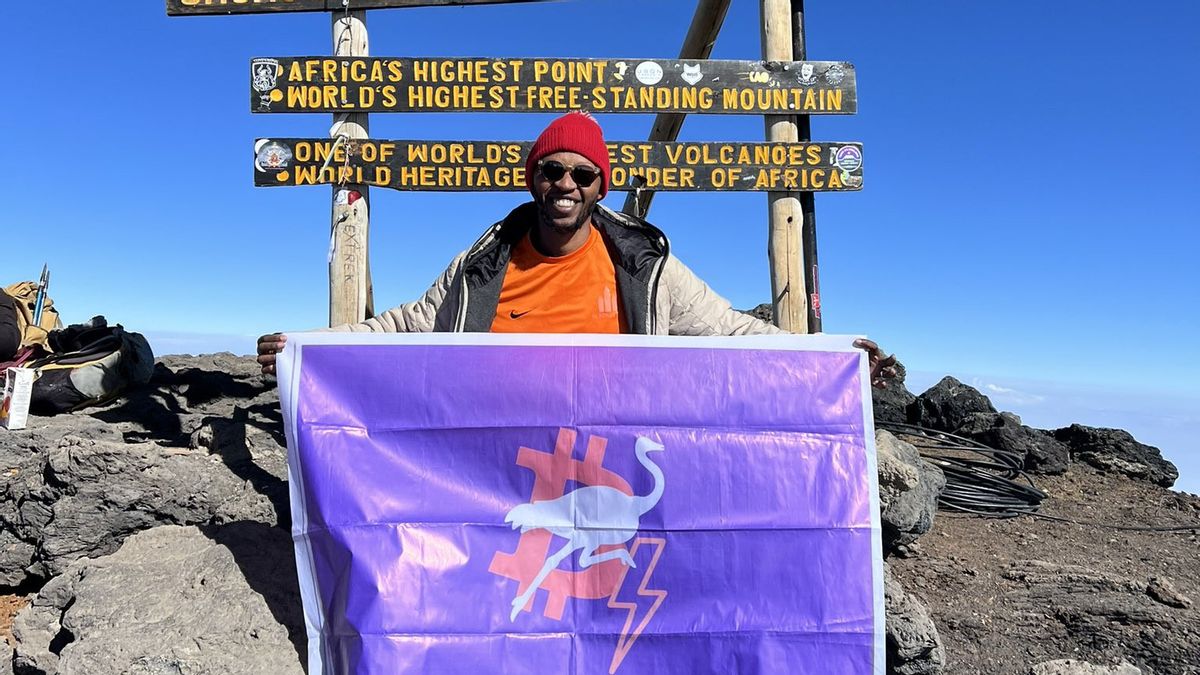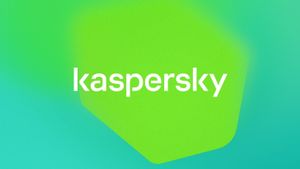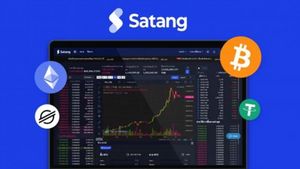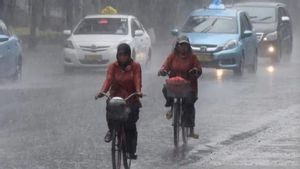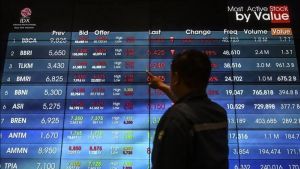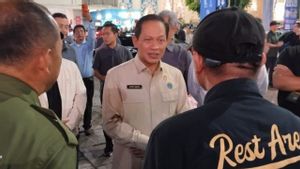JAKARTA - A Tanzania-based Bitcoin educator has conquered Africa's highest peak, Kilimanjaro, by financing his entire journey through Bitcoin and Nostr donations.
Kwes (not his real name) raised more than 1,700 US dollars (Rp27 million) in Bitcoin (0.0018 BTC) to cover the cost of climbing, which also serves as an announcement for the new Bitcoin education academy in Tanzania.
Kwes and his wife recently moved to a new city in Tanzania to open a learning center called "proof of Work Academy," or POWA. Kweks said that although POWA was a joke about Bitcoin consensus protocol, proof-of-work, it also referred to the word Zwahili "Poah," which means fresh or cool.
To promote the new school and smoothly demonstrate its interest in decentralized protocols, including Bitcoin and Nostr, Kwess funded climbing to a height of nearly 6,000 meters in satoshi or sat, which is Bitcoin's smallest denomination equivalent to 100 million parts of 1 BTC.
Kweks carried and raised the giant Nostr flag when sharing status updates during the days of climbing on X, Nostr, and WhatsApp. Speaking from Tanzania, Kweks explained that although the money collected has an important meaning to cover the cost of climbing, the impact is mainly educational.
"I think it's [the climb] going to be a great case study to show what Bitcoin can do and then introduce some people to Bitcoin as well," Kweks was quoted as saying by VOI by Cointelegraph.
KARANGA CAMP 🏕️ 🏔️☑️3995m2 more till UHURU PEAKUHURU means FREEDOM! Which coincides so well with #nostr and #bitcoin Again thanks for the support All zaps go to the project POWA#powakili23PROOF OF WORK ACADEMY https://t.co/bBNjRBC0cu pic.twitter.com/xkVVbxAv8I
— Man Like Kweks 🇹🇿⚡️💜🏔️ (@manlikekweks) August 29, 2023
KARANGA CAMP 🏕️ 🏔️☑️3995m2 more till UHURU PEAKUHURU means FREEDOM! Which coincides so well with #nostr and #bitcoin Again thanks for the support All zaps go to the project POWA#powakili23PROOF OF WORK ACADEMY https://t.co/bBNjRBC0cu pic.twitter.com/xkVVbxAv8I
The climb shows the local community that the global base of Nostrikes (Nostr users) and generous Bitcoin proponents around the world are pleased to support the ascent and educational work of Kweks in Tanzania.
In addition, Kwess received a tip from one of the guides who led the group to the summit of "Kili," as locally known, showing Bitcoin adoption from grassroots in Tanzania.
Apparently, there is an understanding of Bitcoin in Tanzania, explains Kwes but one of the main challenges is the exit route to local currencies. Coinbase, Kraken, and Gemini are not operating in Tanzania, thus exchanging cash for Bitcoin and vice versa can be challenging.
Throughout the climb, Kweks received questions and comments to want to know from Tanzanians about how he financed the adventure and unavoidable questions: "What is Bitcoin?"
In the end, Bitcoin adoption in Tanzania is very different from in the UK, where Kwes spent 25 years of his life before moving to Tanzania.
VOIR éGALEMENT:
He explained, there is a barter system that is more installed in East Africa. Explaining about money and high inflation and the reasons why a programmed inflation rate currency, such as Bitcoin, can offer an alternative economic system to the public, could be a challenge.
"When I arrived in Tanzania ten years ago, 1 US dollar was equivalent to 1,500 Tanzania. As of today, it's 2,600. That's ten years later. It's crazy!"
In the end, the key to unlocking Bitcoin education is to use terms that are relevant to people. "I talked to them about how much the price of bread goes up and how much the fuel price goes up, and they understand that," Kweks said.
"They see that it is getting more and more difficult to meet the needs of life. So with these concepts, they understand that Bitcoin tools can help them and that's the job. That's the job that needs to be shared and explored," he added.
Kweks continues to post and share educational resources on Nostr and X, while POWA's educational resources offer free education classes to Tanzanians based near Kilimanjaro.
The English, Chinese, Japanese, Arabic, and French versions are automatically generated by the AI. So there may still be inaccuracies in translating, please always see Indonesian as our main language. (system supported by DigitalSiber.id)
